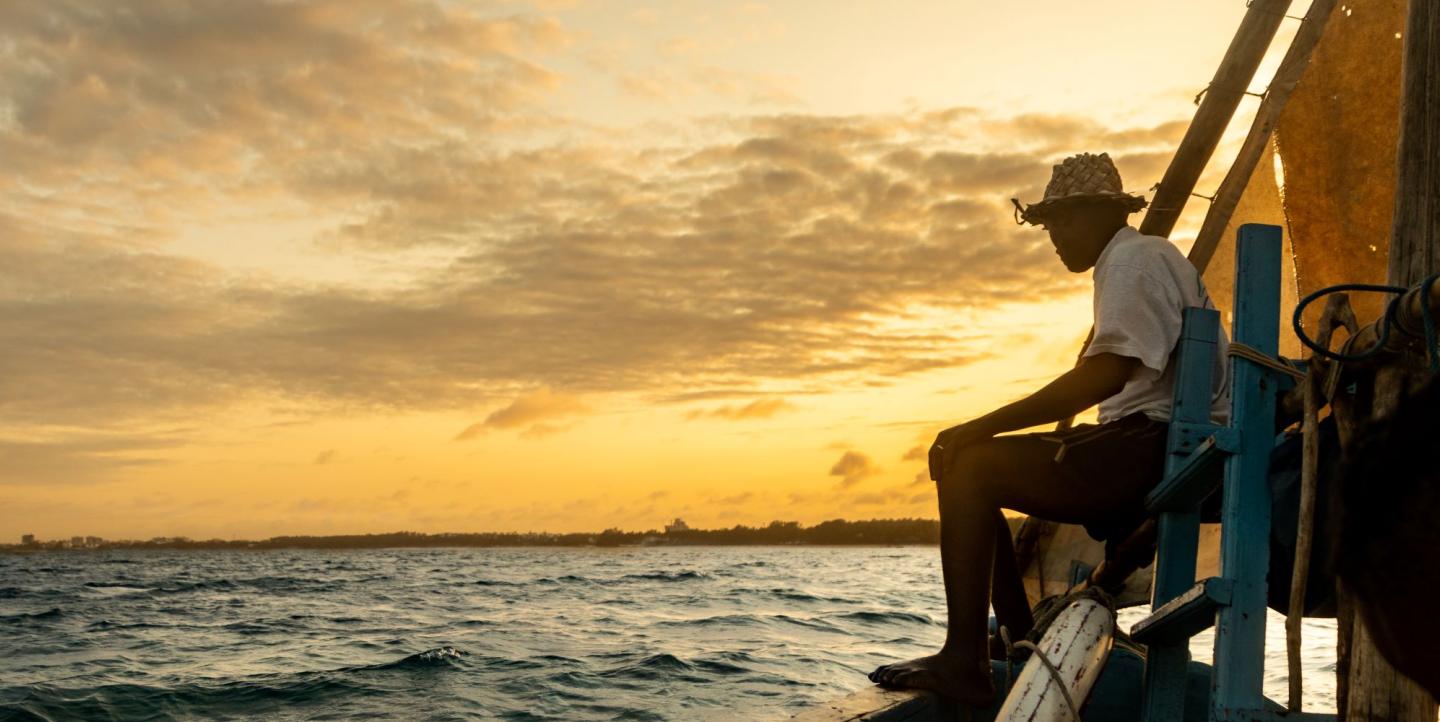Kenya boasts a rich marine ecosystem that is key to the economic wellbeing of the over 4 million people that live in the country’s coastal communities. It's home to coastal forests, mangrove forests, seagrass, coral reefs, sand dunes and sandy beaches, among other habitats.
The country’s blue economy, or “the sustainable use of ocean resources for economic growth, improved livelihoods, and jobs while preserving the health of the ocean ecosystem,” per the World Bank, is taking shape as a result. The UN Habitat estimates that Kenya’s marine ecosystems contribute at least four percent of the country’s GDP, equivalent to US$2.5 billion per year.
The government is hoping to capitalize on the sector. In 2021, Kenya launched a four-year GoBlue project aimed at creating over 3,000 jobs for youth and women in blue economy industries like recycling, tourism and fishing. When President William Ruto took office in late 2022 he formed a Blue Economy Ministry to spearhead the sector’s development.
Coastal residents are yet to fully reap the benefits of the blue economy, however. “The blue economy is taking shape in Kenya but the Kenyan coastal community is yet to fully exploit the blue economy. This is partly due to limited information that is out there,” said Emmanuel Nzai, CEO of Jumuiya ya Kaunti za Pwani, an economic bloc comprising six coastal counties.
Recognizing the lack of public information around the blue economy, two young journalism graduates, 28-year-old Gilbert Were and 25-year old Johnson Muema, founded Gilitics Media, a digital media startup in the coastal city of Mombasa.
“In 2019 we participated in a tech incubation challenge by TechBridge Hub,” said Gilbert. “We won a KES100,000 cash prize, which we used to register the company and launch the website,” said Were.
Gilitics Media grew and later gave rise to Blue Radio, an outlet that promotes the education of the blue economy among young people in Kenya’s coastal communities.
“Our digital radio startup develops and broadcasts educational programming that covers different aspects of the blue economy, including sustainable fishing practices, ocean conservation efforts, value addition and development of blue economy technologies,” explained Were, further noting that their primary aim is to encourage young people to take up employment opportunities within the blue economy.
“We bring experts and government maritime officials in the studio to teach communities and especially the youth about existing and untapped opportunities that can be exploited within the blue economy sector,” he said.
The radio shows also spotlights success stories from small-scale investors in the blue economy sector. “By featuring success stories from ordinary people who have taken the leap into blue economy investment we help influence others to dare taking the same steps,” Were said.
Blue Radio partners with government agencies, local non-governmental organizations and experts to host discussions that address issues related to the blue economy. It has worked with the Blue Economy Innovation Hub at the Technical University of Mombasa to develop education materials on the blue economy.
They package their reporting in documentaries, features articles, web articles and live streams. They also utilize social media to engage young people.
“We decided to pursue the blue economy aspect because the community has very limited information on the blue economy despite the existence of the Indian ocean,” said Muema. “Many think that the blue economy is all about fishing, but through our platform we are letting them know that even tourism and marine conservation is part of the economy.”
In one example of positive impact, Blue Radio’s reporting inspired Mwakazi Ngala, a fisherman and resident of Kwale, to become a marine protector. “The lessons taught me the dangers of overfishing and marine pollution. As a fisherman, it dawned on me that to protect my fishing trade I have to conserve marine life and the ocean,” he said.
The future is bright for Blue Radio, Muema believes: “Our long-term goal is scaling by taking up more consultancy roles in the digital media space, expanding the venture’s reach further across Kenya and ultimately establishing a digital television station as an additional product.”


